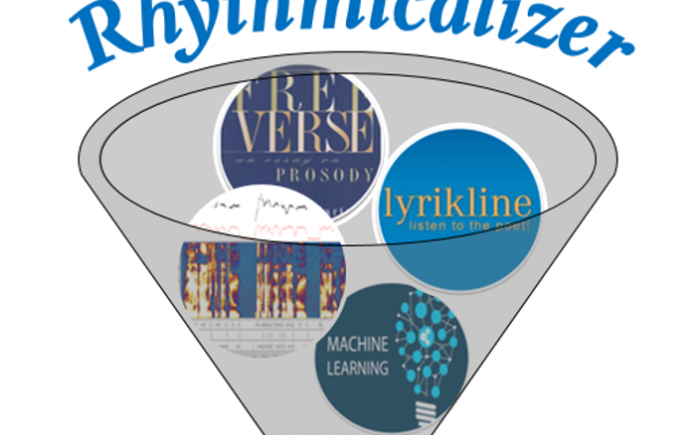Rhythmicalizer. A digital tool to identify free verse prosody

At least 80 per cent of modern and postmodern poems have neither rhyme nor metrical schemes such as iambic or trochaic meter. Does this, however, mean that they lack any rhythmical features? According to US research on free verse prosody, the opposite is true: modern poets like Whitman, the Imagists, the Beat poets, and contemporary Slam poets developed a post-metrical idea of prosody that employs rhythmical features of everyday language, prose, and musical styles including jazz and hip hop. Our project, funded by the Volkswagenstiftung since January 2017, will test this theory by applying digital pattern recognition techniques to a corpus of modern and postmodern poems as read aloud by the original authors.
To this end, we examine the four major online portals for spoken poetry. Making use of the vastly improved prosody detection available in speech processing technology today, we will identify rhythmical features through methods including phrase break prediction, prosodic phrasing, spoken document analysis, and fluency/disfluency modeling. In a first step, the philological sub-project will define rhythmical patterns based on a comparison of the textual line arrangement with the prosodic phrasing of the poet’s voice. Then the digital sub-project will develop an automatic pattern recognition tool, based on machine learning techniques, that is then capable of analyzing further material.
Our aim is to develop a methodology and a software tool for prosody detection and formal corpus analysis, tailored to written and spoken modern free verse poetry. In traditional poetry, metrical patterns such as pentameter or hexameter are used to identify poetic forms (for instance the elegiac couplet) or influences (for instance the influence of ancient Greek poetry on eighteenth-century German writers). In a similar way, our study of rhythmical patterns will help to identify poetic forms in free verse prosody and detect influences such as that of American free verse on modern and postmodern German writers. In the long run, our tool will be hosted by the German website lyrikline.com, and will be accessible for university teaching and research in a sustainable way.
